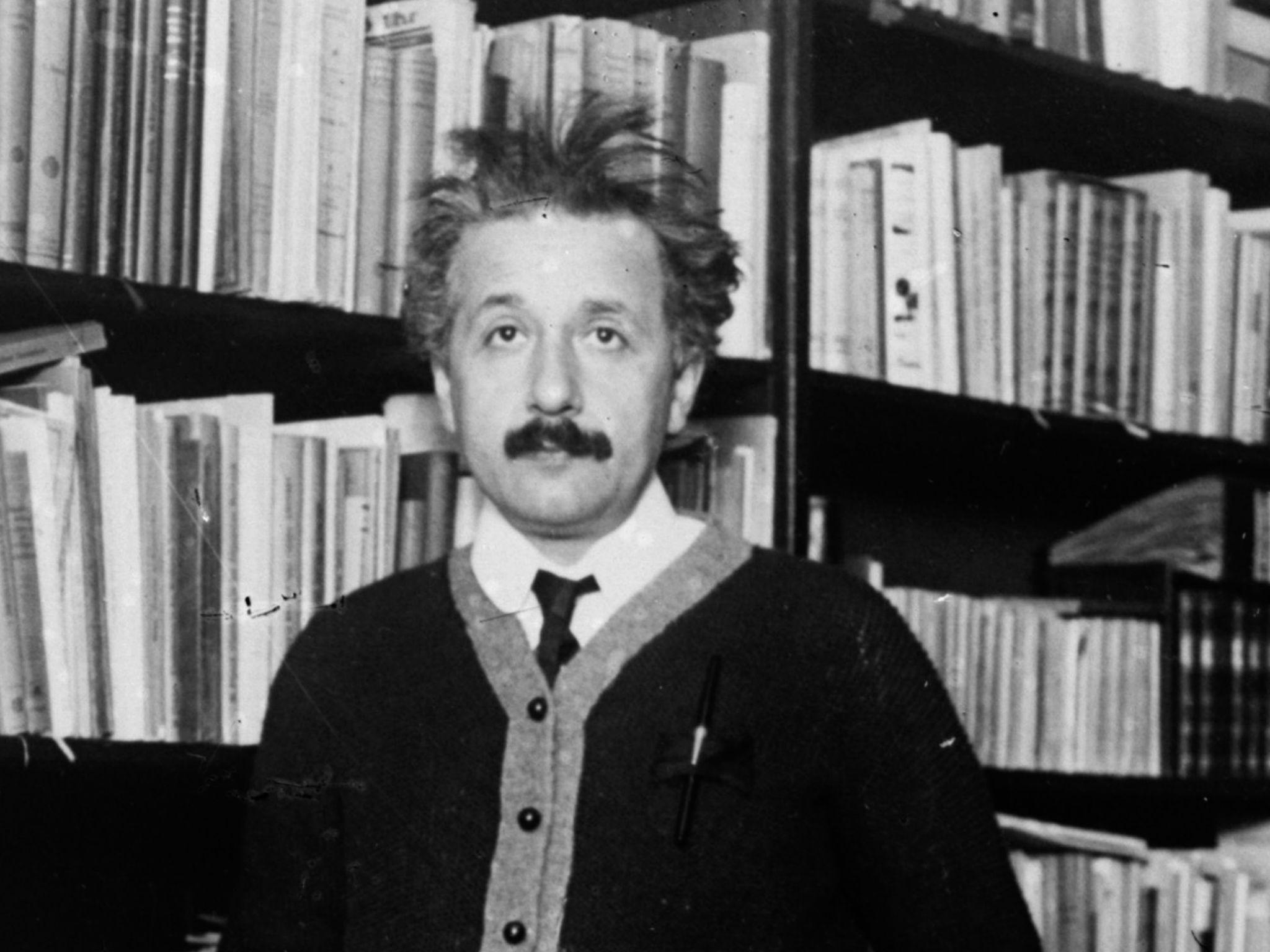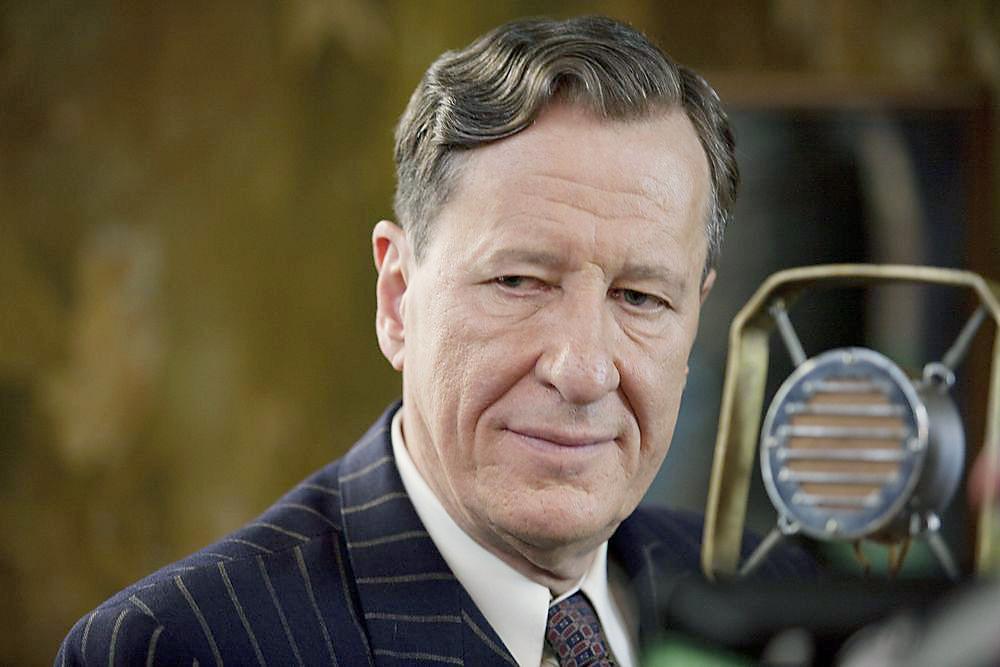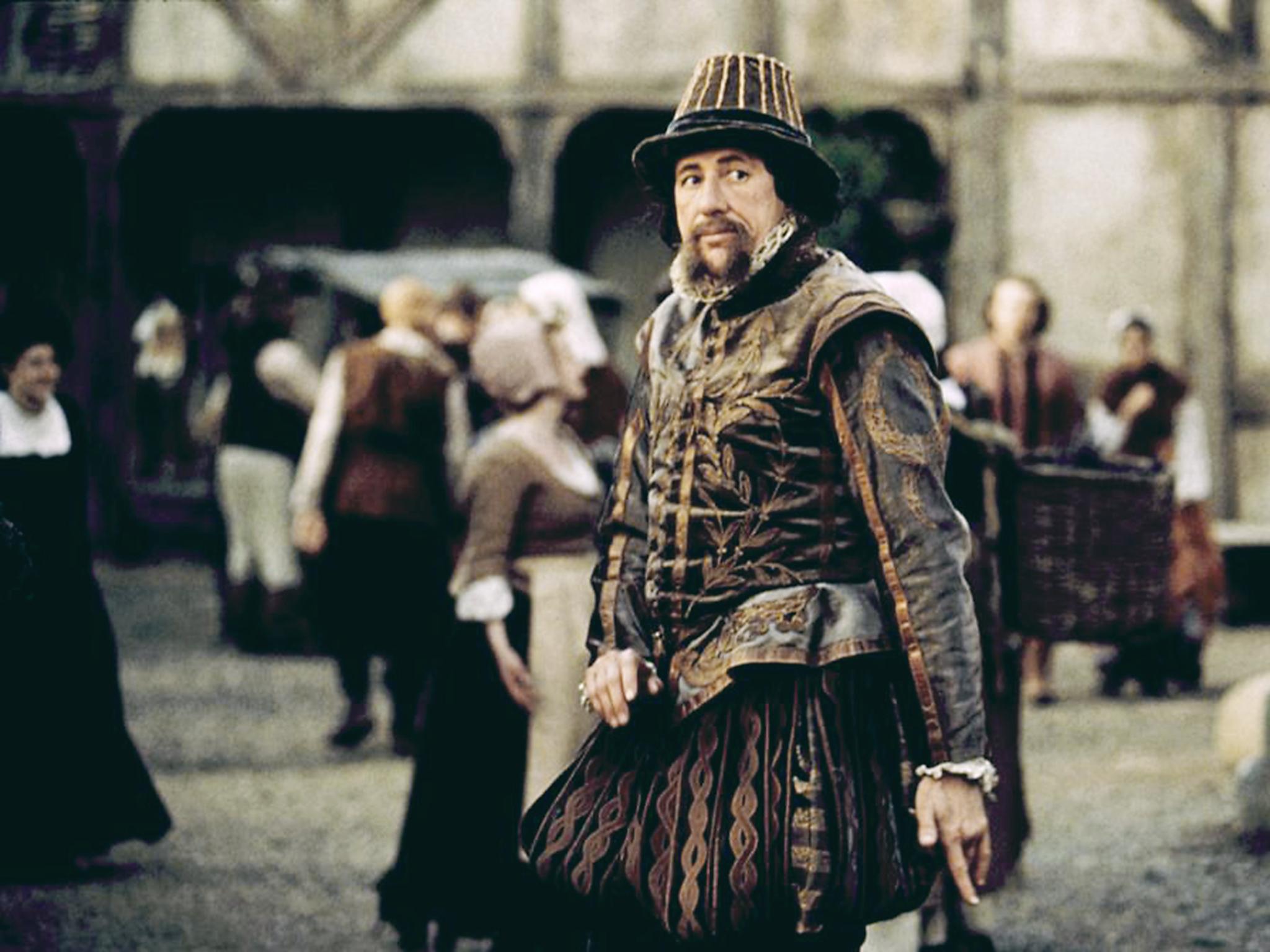Genius' Geoffrey Rush on playing Einstein: 'Before celebrities were called celebrities, he became world-famous for something nobody understood!'
The Oscar-winning actor stars as Einstein in his later years in National Geographic's 'Genius' which reveals the human side of the physicist as a womanizer who befriended Franz Kafka and Carl Jung

Your support helps us to tell the story
From reproductive rights to climate change to Big Tech, The Independent is on the ground when the story is developing. Whether it's investigating the financials of Elon Musk's pro-Trump PAC or producing our latest documentary, 'The A Word', which shines a light on the American women fighting for reproductive rights, we know how important it is to parse out the facts from the messaging.
At such a critical moment in US history, we need reporters on the ground. Your donation allows us to keep sending journalists to speak to both sides of the story.
The Independent is trusted by Americans across the entire political spectrum. And unlike many other quality news outlets, we choose not to lock Americans out of our reporting and analysis with paywalls. We believe quality journalism should be available to everyone, paid for by those who can afford it.
Your support makes all the difference.62 years after his death, Albert Einstein remains the most famous scientist on the planet. The world is still Einstein a go-go.
He has made a mark on our consciousness like no other scientist before or since. The landmark image of Einstein, with his shock of “eccentric professor” hair and his tongue sticking out, graces T-shirts and posters in every corner of the world. Time magazine's Frederic Golden says that Einstein is, “A cartoonist's dream come true.”
The physicist has inspired pop songs (the aforementioned “Einstein a Go-Go” and “E=MC2”), plays (Steve Martin’s Picasso at the Lapin Agile and Albert Einstein: The Practical Bohemian), operas (Philip Glass’s Einstein on the Beach) and films (Insignificance and IQ). Yoda’s eyes on Star Wars are even modelled on Einstein’s.
He has become a global icon. Not bad for a theoretical physicist whose most celebrated discovery – the Theory of Relativity – is properly understood by only a handful of fellow Nobel Prize winners.

Now Einstein is the focus of a new TV series entitled, appropriately enough, Genius. Geoffrey Rush, the Oscar-winning actor, plays the scientist in his later years in the ten-part series (Johnny Flynn from One Song portrays him in his early life). As always, it’s a rush watching Rush. He delivers a characteristic tour de force as Einstein.
Meeting the Australian face to face in an upscale London hotel, it is easy to see why he is so well-cast. The actor emits the same magnetic force field as his screen alter ego. He also shares the scientist’s vivid sense of humour – and out of control hair.
Rush, who won his Academy Award for playing another genius, the pianist David Helfgott, in Shine, begins by suggesting the scientist’s worldwide profile is still so high that Einstein has become, “An emoji.
“He is that guy with the hair like an atomic bomb going off. In fact, I’m going to write to the emoji people and say, ‘You’re missing something here’, and claim a commission!”

But National Geographic's Genius puts the microscope on the man behind the myth. It portrays the human being behind the “mad professor” iconography. It shows us the emotion behind the emoji.

Watch Apple TV+ free for 7 days
New subscribers only. £8.99/mo. after free trial. Plan auto-renews until cancelled

Watch Apple TV+ free for 7 days
New subscribers only. £8.99/mo. after free trial. Plan auto-renews until cancelled
Directed by Ron Howard, also responsible for another piece about a scientific genius, A Beautiful Mind, the drama offers empirical proof that Einstein was light years away from the cliché of a fusty scientist shut away from the rest of humanity in an ivory tower full of blackboards filled with incomprehensible equations.
Based on Walter Isaacson’s book Einstein: His Life and Universe, Genius reveals that the theoretical physicist was in fact a humorous, charismatic man with a winning joie de vivre and a strong sense of engagement with the outside world. He befriended an astonishing range of leaders in other fields, including author Franz Kafka, psychiatrist Carl Jung, fellow Nobel Prize-winning scientist Marie Curie and US President Franklin D. Roosevelt.
A lifelong pacifist, Einstein escaped from the Nazis in his native Germany and was devastated to be linked with the Manhattan Project and the invention of the atom bomb in America.
But Einstein was no angel. He was an inveterate womanizer who was frequently unfaithful to his two wives and had an awful relationship with his children. In fact, the first scene of the drama catches him in flagrante with his secretary. Rush, 65, jokes that, “’Stud muffin theoretical physicist’ is what Einstein put on his tax form!“

Einstein was also defiantly unconventional and would not bat an eyelid about going out in his pyjamas. Rush views him as “a bohemian poet” and “a punk rocker.”
He adds that, “In his later years at Princeton, he’d be sitting on his verandah in a casual sweater with huge fluffy slippers, like pieces of acrylic carpet. That was so at odds with who and what he was.
“There is another scene in Genius, where he is sitting on the beach next to his second wife Elsa [played by Emily Watson, Apple Tree Yard] and wearing her sling-backs. He probably said, ‘I couldn’t find my sandals, so I just put on the most sensible shoes I could find to walk to the beach’.”
According to Rush, Einstein’s iconic riot of white hair also, “Became part of his instinctive rebellious nature. Once the First World War was over, everyone had their hair shaved to reinforce discipline. That’s when Einstein started to grow his hair longer. No one else has got that, and I like it. It was a strong statement about his individuality”.
But, more than half a century after his death, why is Einstein still such a inspiring figure? Maybe it is because he is a wonderful role model, an emblem of pure, unabashed intellect in an era of relentless dumbing down.

When we appear fixated by nothing more profound than the Kardashians’ latest diet and Brexiteer-in-chief Michael Gove sneers that, “We've had enough of experts,” how tremendous to rejoice in a man who was celebrated for being the brainiest person on earth.
Rush, who also picked up Academy Award nominations for his performances in Shakespeare in Love, Quills and The King’s Speech, reflects that, “Einstein was the most astonishing, admirable person.
“Given the way the world is at the moment, I feel that he is a rarity. He’s a hero in a story about science. There aren’t many role models around at the moment who have that kind of empathy, compassion and curiosity. He was living and thinking outside the current orthodoxies. Before celebrities were even called celebrities, he became world-famous for something nobody understood!”
Rush continues that, “Einstein became famous for his work, on the same level as Charlie Chaplin. You can understand why Chaplin became so famous because he was a great cinema clown and could work without language.
“But to become famous as a theoretical physicist and have a political and philosophical standpoint as well as being a genial, charming personality with an interest in how the world works – well, that is quite astounding.”

Ken Biller, the show-runner on Genius, emphasises the extent of Einstein’s celebrity. “When he first arrived in the US in 1921, tens of thousands gathered to greet his boat at Battery Park on the southern tip of Manhattan. It took him several hours to cross New York City in a motorcade. He was mobbed wherever he went.
“He captured the public imagination. People didn’t understand the Theory of Relativity. But at a time when people placed a huge amount of importance on scientific innovation, they just knew he was the world’s most brilliant man. Nowadays, we don’t pay much attention to scientists. But Einstein was the world’s first international superstar.”
But despite that, Einstein remained appealingly modest. He once self-deprecatingly asserted that, “I have no special talents, I’m only passionately curious.” The public acclaim amused – and somewhat perplexed – the scientist, who once famously asked: “Why is it that nobody understands me, yet everybody likes me?”
The makers of Genius conclude by assessing why Einstein’s life makes for such good drama. Rush muses that, “There is a glow about Einstein’s mental and humane capabilities that people constantly find sustenance in. He said: ‘We’re all different, so let’s ask questions and deepen human experience.’ He had a fundamental goodness that he radiated to the world.”
Howard chimes in that, “Einstein was a pioneer. One of the definitions of genius is an individual prepared to ask difficult questions and go against convention. In art or science, those who discover something new are geniuses. But there is a personal price that these people pay.
“They’re not exactly like you or me – although I won’t presume that you’re not a genius! That fascinates me. I find it dramatic and emotional to think about the sacrifices they make to explore the frontiers of the unknown.”
Perhaps that is the nucleus of our enduring fascination with Einstein. We are still so drawn to him because he possessed an insatiable curiosity which we all aspire to, but can never attain. Biller affirms that, “Einstein was asking questions that no one else was smart enough to ask.
“A brilliant person aims at a distant target and hits it. A genius hits a target that no one else is aiming at.”
'Genius' starts on National Geographic at 9pm on Sunday 23 April
Join our commenting forum
Join thought-provoking conversations, follow other Independent readers and see their replies
Comments